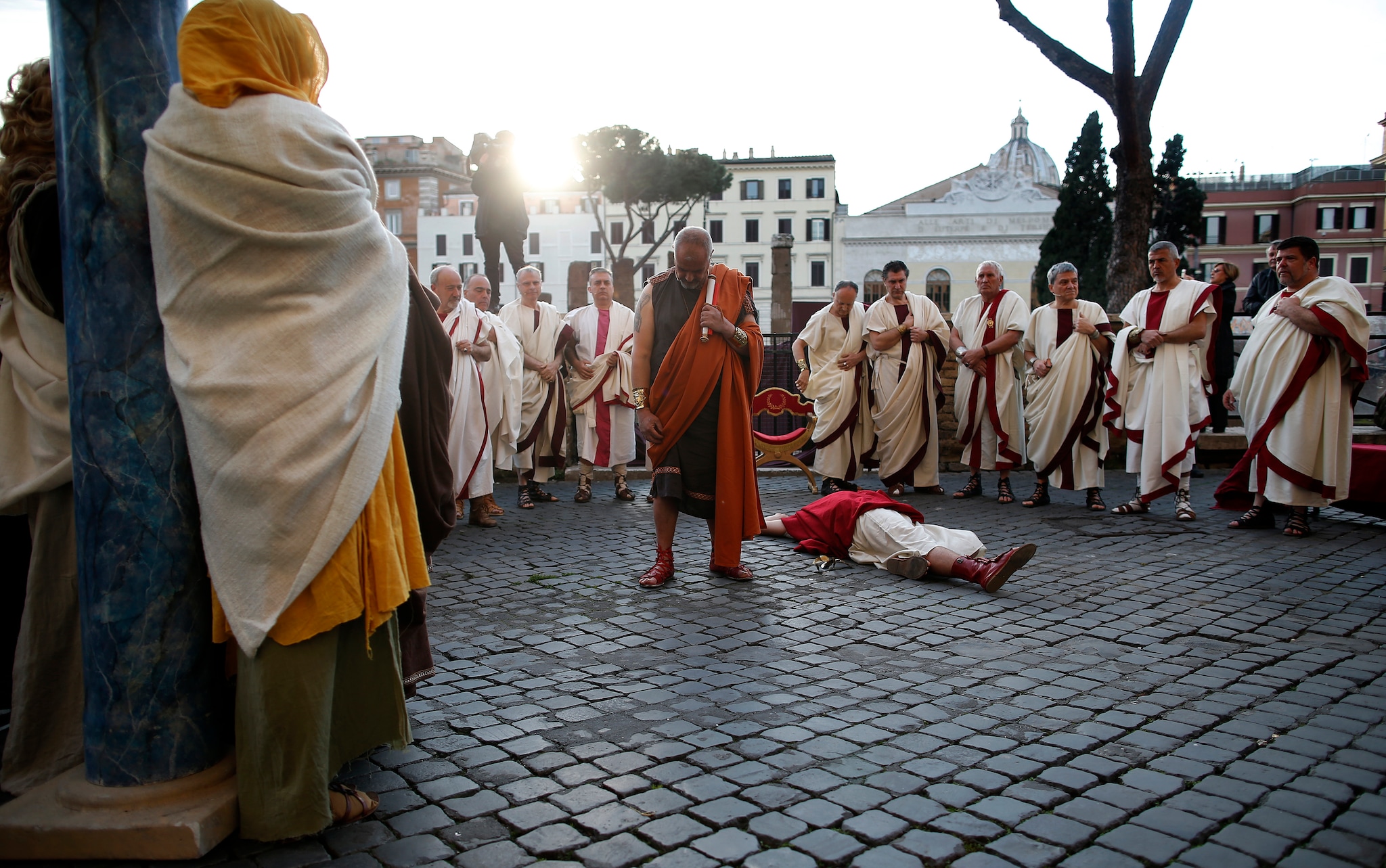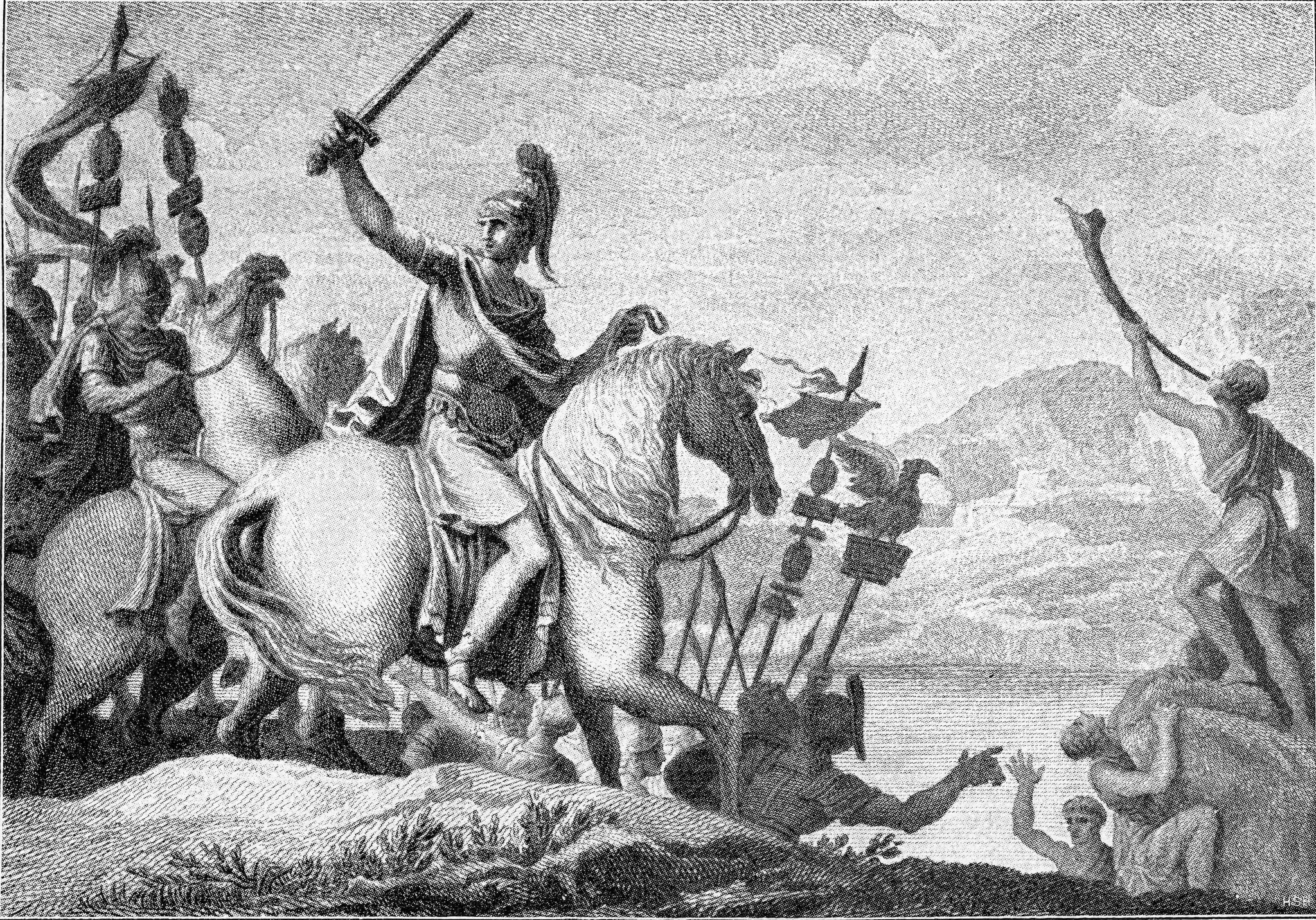The world of Shakespeare is vast. Boundless, frightening, romantic, and yes, royal. William Shakespeare, the writer credited with giving poetic and dramatic hues to the English language, is still as alive today as he was 400 years ago.
That is why his work has travelled time and boundaries to still be read and lived by students in India, presently. The class 10 literature textbook of NCERT gives classrooms a glimpse into Shakespeare’s famous play –The Tragedy of Julius Caesar – which deals with themes of politics, morality, honor, and of course, betrayal. Lest we forget, the play gave us that famous line – And you, Brute?
But let’s go back on how Shakespeare has sustained the times. More so, his work still remains relevant, exploring topics that apply to our daily worlds. These themes get countlessly addressed by elders, and old tales and affirmations. In this chapter of Classes With News18we talk about some of the themes that lie within the Tragedy of Julius Caesarand how they could as easily exist in the Roman empire in 44 BC, as the world of 2022.
Actual history: Julius Caesar was a well-liked Roman general and leader. He had successfully expanded the Roman Empire into modern-day Spain, Germany, France, Switzerland, and Belgium. Julius Caesar was assassinated by a group of senators at the Senate in Rome on March 15, 44 BC.
Caesar was popular with the people and the army, but not with the members of the Senate. This group of men formed the Roman Empire’s government. The Senate became concerned that Caesar was becoming too powerful and plotted his assassination. On March 15, 44 BC, the conspirators ambushed Caesar and stabbed him 23 times. The Roman Republic came to an end with Caesar’s death. Octavian, Caesar’s grandnephew and adoptive son, became the new ruler of Rome after a series of bloody civil wars. He renamed himself Augustus Caesar, and his reign marked the start of the Roman Empire.
The world had changed a lot since Julius Caesar’s time over 1600 years ago when a playwright in London sat back in his chair, having finished a new play about the long-dead Roman leader. William Shakespeare was his name.
The Play: A plot to assassinate Julius Caesar is underway. Members of the plot persuade Caesar’s close friend Brutus to join them. They are concerned that Caesar is gaining too much power. On the Ides of March, Brutus and the other conspirators intend to assassinate him. The Roman Empire is thrown into chaos after they stab Caesar in the Senate.
Mark Anthony expels the conspirators from Rome and defeats them in battle. The conspirators are defeated. Brutus and Cassius commit suicide. Anthony has avenged Caesar’s death and is now in charge of Rome.
The NCERT chapter threads a journey to Caesar’s death, with Calphurnia (Caesar’s wife), having horrid dreams, to the Roman leader being dealt a final blow by his dear friend Brutus:
Caesar is kept awake by Calpurnia’s nightmares. He dispatches a servant to request a sacrifice from the priests and to inform him of the outcome. Calpurnia enters and insists that Caesar not leave the house despite all the warning signs. Caesar rejects her, refusing to succumb to fear. But Calpurnia, who has never believed in omens, tells of what happened earlier that night in the city: dead men walked, ghosts roamed the streets, a lioness gave birth in the street, and lightning shattered the skies. She claims that these warning signs indicate impending danger, and that Caesar cannot afford to ignore them.
CALPURNIA
Caesar, I never stood on ceremonies,
Yet now they fright me. There is one within,
Besides the things that we have heard and seen,
Recounts most horrid sights seen by the watch.
A lioness hath whelped in the streets;
And graves have yawn’d, and yielded up their dead;
Fierce fiery warriors fought upon the clouds,
In ranks and squadrons and right form of war,
Which drizzled blood upon the Capitol;
The noise of battle hurtled in the air,
Horses did neigh, and dying men did groan,
And ghosts did shriek and squeal about the streets.
O Caesar! these things are beyond all use,
And I do fear them.
After much back and forth, and more omens, it’s finally almost morning. Decius appears, as promised, to accompany Caesar to the Capitol. Caesar informs him that he will not be attending, and Calphurnia adds that Decius should inform the Senate that Caesar is ill. Caesar emphasises that he has conquered nations and is unconcerned about some old senators finding out why he had to stay at home.
Brutus, to convince Caesar, provides a positive spin to Calphurnia’s omens. He also says that the senate has decided to crown Caesar as the king, and that if he did not come, they might change their mind. Caesar agrees to leave.

Artemidorous, who is a good wisher of Julius Caesar tries to stop him by giving him a letter but Caesar does not bother reading it. Julius Caesar reaches the Senate being unaware of the conspiracy and firstly, Casca and, lastly Brutus, stab him to death.
Almost all of us have at some point of lives been warned by elders who seem to mean well with superstitions that seem downright silly. This situation is not very far apart from what Caesar faces, just hours before his death. The play of Julius Caesar is truly lined up with omensand they represent an almost mystical timeline – predicting all to come – within the play.

But according to some literary analyses, the omens don’t necessarily mean that things would have gone a different way had they been paid heed to. This weaves in the whole Fate vs Free Will debate within the play too – as characters make cases for both scenarios. So, do the premonitory instances nudge you to delve deeper into gut feelings and their relation with our human psyche, or do they only represent unnecessary hurdles towards an immovable destiny or a free will, as also indicated in Shakespeare’s play?
Again, a lot of us have often as kids also been warned of not having our ‘head up in the clouds’ and becoming more practical. This elder’s admonishment also seems to find its way into the Caesar story. Going by literary analyses, idealism is not really good in its extremity. “Brutus wishes for an ideal world. He is happily married, lives in a lovely home, and is prosperous by all Roman standards. However, Brutus desires perfection in his life, and while he loves Caesar, Brutus fears Caesar is too power hungry and may destroy the Republic.”

“Cassius recognises Brutus’ idealistic nature and uses it to manipulate him into joining the conspiracy against Caesar. Brutus’ ultimate downfall is due to his idealistic nature. When addressing Brutus’ dead body at the end of the play, Antony recognises this fact, saying, “This was the noblest Roman of them all,” explains a report by Gradesaver.
Meanwhile, angry and arrogant kings have all figured in the old fairytales our grandparents have told us. Stories with moral undertones have always spoken about the fallacies of extreme pride and arroganceand Julius Caesar’s character in the play seems to play upon that.

As explained by a report in Schmoop: “Arrogance has a protective quality in the play: it’s only by his intense arrogance that Caesar stays ignorant of the plot against him. Shakespeare points to arrogance as one of man’s most dangerous failings. Under the influence of arrogance, a man can neither judge himself, nor accept the judgment of others.”
To learn about other topics taught in school, explained by News18, here is a list of other Classes With News18: Queries Related to Civics Chapter on ‘Elections’ | Sex Versus Gender | Natural Disasters | Wonderland of Letters | Civil Wars | Cryptocurrencies | Economy & Banks | Silk Route
Read all the Latest News , Breaking News watch Top Videos and Live TV here.




